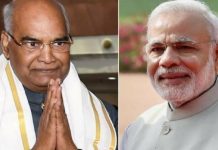 The first half of The Beatles’ Abbey Road ends with the coda of I Want You (She’s So Heavy), a three-minute repetition of an increasingly ominous riff, growing louder and more intense with every iteration. And then, silence. The abrupt ending gets me every time. It’s the breaking of a spell, a sudden feeling of emptiness that only serves to reinforce the thrall this album holds you in.
The first half of The Beatles’ Abbey Road ends with the coda of I Want You (She’s So Heavy), a three-minute repetition of an increasingly ominous riff, growing louder and more intense with every iteration. And then, silence. The abrupt ending gets me every time. It’s the breaking of a spell, a sudden feeling of emptiness that only serves to reinforce the thrall this album holds you in.
Ritesh Batra’s The Lunchbox ends in a similar fashion, with much the same results (for me, at least). It cuts to black in the middle of its version of the airport dash, that trusty trope of romantic films where the hero must track down his love and tell her his true feelings before she leaves forever (in this case, for Bhutan). There is a second’s pause, as the auditorium lights up, before the closing credits. It’s enough time for you to realise that the ride’s over and you must get off. To feel betrayed by the director’s refusal to give you the big, emotional ending you think you deserve. To acknowledge that you wish you didn’t have to leave, that at that moment you want nothing more than to spend the rest of your life listening to the story of these three fascinating characters. (At any rate, it’s better than what those poor kids have been forced to endure for eight years in How I Met Your Mother.)
The premise of love blossoming between strangers entirely through a series of letters isn’t particularly new. Neither does the film deviate much from the traditional romance story arc, in spirit at least. But in this typical framework, Batra creates three intricately defined protagonists with great sensitivity, aided by excellent performances by Irrfan Khan, Nimrat Kaur and Nawazuddin Siddiqui. He establishes them as authentic, multidimensional people. “You want to take them home, sit them down at your table, and savour them, one mouthful at a time,” writes Shubhra Gupta in her review. Though the average viewer might not be moved to such desires of cannibalism, it is these characters that make The Lunchbox a truly marvellous film.
Saajan Fernandes (Khan) is an introvert, a widower on the verge of retirement who has withdrawn from the world. He is lonely, but not melancholic, as a lesser writer would have portrayed him. He understands the importance of human contact, but does not long for it. He is brought out of his shell by his love affair with Ila (Kaur), conducted through notes passed in his daily lunchbox after the famous dabbawallas of Mumbai make a rare mix-up (even they make one mistake in every six million or so deliveries). Ila is dissatisfied with her marriage, ignored by a husband who is having an affair of his own. But she is no Charulata clutching her bedpost, but a woman who lives with her insecurities on a daily basis while remaining a caring wife and mother. It is only in their letters that Saajan and Ila can be frank about their hopes, dreams, fears and insecurities, which makes their love believable. A shoulder to cry on, after all, is a very powerful thing.
Since the film mandates that Saajan cannot physically meet Ila, the changes in his personality are shown through his relationship with Shaikh (Siddiqui), an earnest, self-made man who is to be Saajan’s replacement once he retires. Shaikh’s persistent nature is initially anathema to the reserved Saajan, who avoids talking to him as much as possible. But as the letters continue, his reserve weakens and he gradually comes to accept Shaikh as more than just an irritating presence, eventually as a friend.
Batra is adept at using silences and tiny moments to make his point, even if at times it seems he is infusing too much poetry into the film. The connection between Saajan and Ila, for instance, is demonstrated on multiple occasions through the same song playing around both of them, something that feels too gimicky. But it’s a sign only of a director trying too hard to make a great film, and I’d much rather Bollywood erred on the side of ambition than caution.













